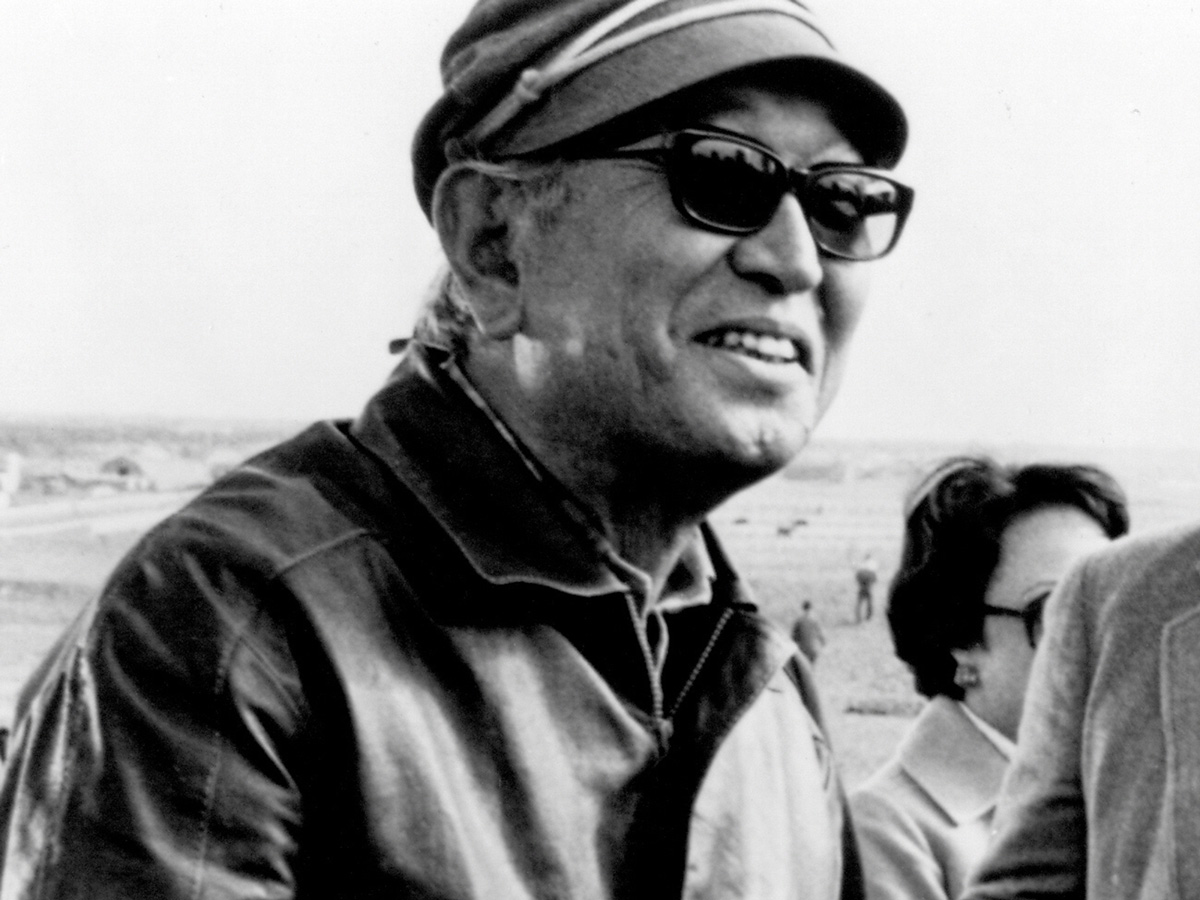
(c) Photofest / Getty Images
Why Akira Kurosawa's version of the ``Tokyo Olympics'' never materialized, Part 2
Index
- The search for a successor manager is in turmoil and the offer of director Tadashi Imai
- Uncertain director change drama and third director
- "Ode to Joy" was played as filming began.
- Hideko Takamine and the Olympics
- A phantom “wonderful dream”
The search for a successor manager is in turmoil and the offer of director Tadashi Imai
Following Akira Kurosawa's official withdrawal from the Olympic documentary film, the organizing committee asked the Tokyo Olympic Film Association to select a replacement director. In the end, the list was narrowed down to five: Kaneto Shindo (freelance), Tadashi Imai (freelance), Minoru Shibuya (Shochiku), Shohei Imamura (Nikkatsu), and Kon Ichikawa (Daiei) (affiliations are shown in parentheses). It appears that the nominations were centered on directors who were highly acclaimed at overseas film festivals, but the organizing committee said they had no problems with these candidates, and the Olympic Film Association narrowed it down to one.
Tadashi Imai was the most likely candidate. He far surpassed Kurosawa in the evaluations of his contemporaries, including works such as `` Nigorie '' (53), `` Darkness at Midday '' (56), `` Kome '' (57), and `` Kiku to Isamu' ' (59). , is suitable for a director responsible for an Olympic film. Negotiations began immediately, and although it was said that ``Mr. Imai is also said to be moved'' (Yomi Shimbun Evening Edition, November 24, 1963), a month later, there was a complete reversal and ``it is almost impossible to reach an agreement.'' However, because the production period overlapped with a feature film planned by Toei, Mr. Imai had no choice but to abandon the project.'' (Yomi Shimbun, December 29, 1963).
It is true that Imai had a busy schedule, having filmed `` Echigo Tsutsuishi Wisdom Teeth '' and ``Revenge'' at Toei in 1964. In fact, the ``Tokyo Olympic Games Tokyo Organizing Committee Bulletin (22)'' states, ``Mr. Tadashi Imai, who was initially nominated, had his schedule inconvenient, so we started the selection from scratch again.'' This is the official opinion.
On the other hand, there is another view. Imai was about to be chosen, but ``Some people within the organizing committee expressed disapproval of Coach Imai's way of thinking, and everyone involved was worried about the selection.'' (Asahi Shimbun, January 18, 1964) day). It is vaguely written as ``a way of thinking,'' but since Imai is a member of the Japanese Communist Party and has an anti-war ideology, he is wary of bringing certain ideas and beliefs into the movie. > Wasn't it?
However, the question remains as to whether Imai really showed any intention of directing in the first place. Imai, who made films to promote national prestige during the war, and who continued to harbor regrets after the war, made reference to individual responsibility for the war and the imperial system when talking about his latest work at the time, ``Bushido Cruel Story '' (63). ing. Will such a director actually get involved in making an Olympic film, which is a national project?
Let's look at it from the perspective of Imai, the person involved. According to Imai's essay ``The Big Halo That Still Hasn't Sunny'' (published in the August 1965 issue of Ushio), in late 1963, ``I received a request from Mr. . Mr. T probably refers to Taguchi, the president of the Olympic Film Association. However, Imai immediately declined. The reason for this was, ``I was not in favor of hosting the Olympics in Japan.If we had that kind of money, we would have to do things like build more nursing homes and facilities for the physically disabled.'' This was because he thought there was a lot to be desired, and also because, ``Even if I were to take on the role of director, I was sure there would be a side attack midway through.'' In other words, since even Kurosawa couldn't do what he wanted, he declined in anticipation that it would be the same if he tried it himself.
However, Taguchi did not back down. Imai describes the process as follows. ``I was told over and over again that I had made a commitment to the organizing committee that I would never object, and that I wanted them to make a film that not only records the competition, but that also takes the theme that the world is all brothers and sisters.'' After several discussions, I decided to accept the offer."
In other words, the talks were actually quite advanced, and the date for exchanging the contract had been decided, meaning that Imai's appointment as manager was progressing right up until the announcement. But why did Imai, who is not in favor of the Tokyo Olympics, decide to accept the offer? Although not mentioned in his essay, he revealed another reason in an interview with Kinema Junpo (early February 1964 issue). He says, ``I want to use the directing fee to pay off my debt and spend enough time working on the movie I want to make.''
It may seem like an unprincipled answer, but for Imai, it was a very serious reason. His previous film, ``Bushido Muzan Monogatari,'' won the Grand Prix at the Berlin Film Festival, but Toei postponed production for eight months due to scheduling conflicts, so he had to spend that time without any income. It was decided that the next film would be ``The Basin of Death'', based on the original work by Tsutomu Mizukami, which is based on a coal mine accident in Kitakyushu, but due to the high production costs and Toei's decision that it was not suitable for a coal mining story, production was canceled and the project was used for preparations. I wasted four months. At this time, Imai was in a situation where he was willing to take pictures of the Tokyo Olympics as long as the conditions were met.

